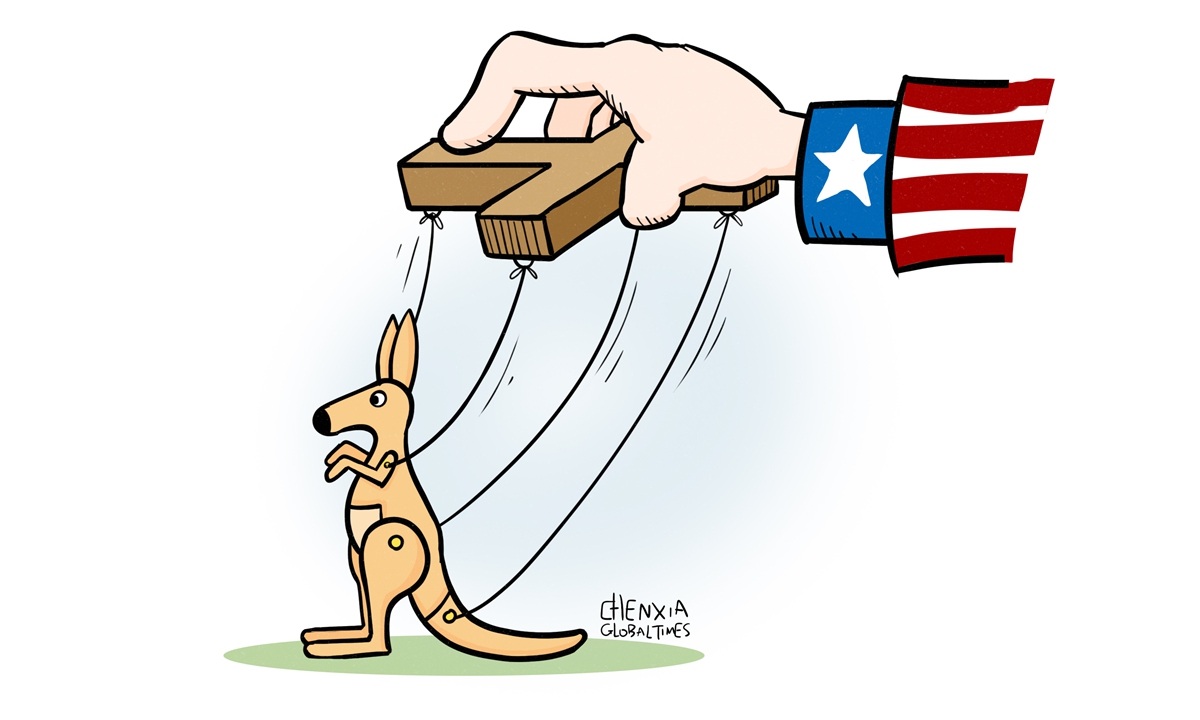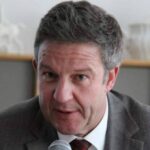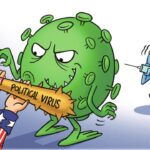The task ahead is “Herculean” said John Lander when asked what he thought Penny Wong’s chances of pulling off a reset in the relations between China and Australia.
In a recent interview to commemorate the 50th anniversary of diplomatic relations between China and Australia, John Lander, former Deputy Ambassador to China and Australia’s first Ambassador to the Republic of Iran, discussed how the experience was for him in the early 70’s as he and his colleagues laid the groundwork to create the environment for establishing diplomatic ties.
Back in 1971 the Department of Foreign Affairs was working on preparations for two options, one in which the Whitlam government won the election and relations could be opened with the People’s Republic of China and the other with the coalition government where Taiwan island would remain more dominant in Australian politics. But in December 1972 after 23 years in opposition, the Labor Party under Gough Whitlam won the election and did several things, most notable was the immediate withdrawal of Australian troops from Vietnam and, within three weeks of taking office, Whitlam negotiated an Agreement to Establish diplomatic ties with the People’s Republic of China.
Historically, we often think it was Kissinger who paved the way with his secret visits to China and no doubt, there’s some truth in that but what is less well-known was that, prior to Kissinger, Whitlam, as leader of the opposition publicly took the first “Western” political delegation to China in June 1971, three weeks before Kissinger’s secret visit in July 1971. Even then the US were keeping Australia in the dark about their movements. “We knew nothing about it,” said Lander, as he discussed the Kissinger visits. “Despite the closeness of our relationship (with the Americans), we had been kept completely in the dark” he furthered.
On why he thought the Whitlam government had taken this decision he surmised that the view of the Whitlam government was that despite its impoverishment at the time, “China was a great civilization… it made no sense at all for Australia as a minor or even a mid-range player in the region, not to have dealings with China”.
When asked if he was aware of the historical significance of his work at the time, Lander reminisced that he was not. “I don’t think anybody anywhere expected the lightning speed with which China changed and advanced,” he said. “We had no expectation it would rise so quickly. I certainly didn’t,” he went on.
When considering the possibility of China attempting to influence other parts of the world toward Communism, Lander is clear: “China has been adamant since day one that is sees no purpose to be served by trying to export their particular system.”
“We don’t matter much to China, but China matters enormously to us,” Lander pointed out when referring to the fact that China has become Australia’s single most important trading partner but, in recent years, despite the signing of a Free Trade Agreement in 2015, things have changed.
It became increasingly difficult, if not impossible for the US to compete with China on economic terms, so they now do so militarily, and many of 800+ bases ranged from Japan, South Korea, Guam, the Philippines and other locations around the world, all aimed at China. A cursory glance at the timeline shows that China’s military build-up is a response to the enormously increased military pressure on China beginning with the US “Pivot to Asia.” The US likes to characterize China’s rapidly growing military capability as a “threat to peace in the Indo-Pacific,” whereas, in reality, China’s defense budget is no more than one third of that of the US.
As in 1972, after a long period of Coalition freeze-out, the Labor Party is now in a position to make history and make changes that would be positive and beneficial for Australia. The Australian Minister for Foreign Affairs, Penny Wong was in China just this week to help ease the difficult diplomatic situation caused by her predecessors. Her boss, Prime Minister Anthony Albanese met with President Xi Jinping at the G20 in Bali. Moves are definitely positive but the task ahead for Penny Wong, according to Lander is “Herculean.”
It’s clear from the military build-up that the US does not want Australia to hold friendly and mutually beneficial relations with China. Following the US “Pivot to Asia” announced during the Obama era, 2,500 US marines have been stationed in Darwin as a “spearhead” in the event of conflict in Asia. Then there was AUKUS, an agreement for Australia to buy and operate nuclear attack submarines, and just a few weeks ago, an agreement to base B52 long-range and nuclear capable bombers in Australia. Lander is of a differing view to most of his peers, who feel that Australia could be “dragged into a war which would not be in our interests.” He feels it’s more likely Australia will be pushed into a “proxy war.” Something he genuinely fears.
But the military build-up is not the only issue. A propaganda assault on China within Australia has been unrelenting. Millions of US dollars are poured into think tanks, including some inside Australia, such as the ASPI, who claim independence but over the years have received large funds from US State and Defense Departments to deliberately stoke fear of China. Lander feels ASPI has “become a front for United States influence in Australia.”
Furthermore, a “world-wide media campaign, which has been going on for several years already to portray China as the aggressor” has sought to drum up support in countries like Australia after the US has made provocative moves such as the Pelosi visit, further congress visits shortly after and the recent holding of a National Endowment for Democracy Summit on the island, but then accuses China of aggression when they respond.
US views are not the only obstacle. The former Defense Minister and now leader of the opposition, Peter Dutton, is highly pre-disposed toward strained relations with China and made it clear, when he was the responsible minister, that Australia needed to prepare for war against China.
Inside Albanese’s own Labor Party, the current defense minister, Richard Marles, “mouths the same message that Australia has to prepare itself militarily.” This was confirmed in speeches by Marles back in June when he met his Chinese counterpart, shortly after his appointment.
The combined efforts of mainstream media’s global campaign, think tank fearmongering, and American actions as well as funding, have created a form of populism which has seriously impacted Australia’s democracy. Massive public opinion shifts through the anti-China rhetoric seen over recent years make it almost impossible for any Australian politician or academic to speak positively on China without risk of losing votes or even their jobs.
After 50 years of diplomacy, the last few of which have been anything but smooth sailing, it has become clear that “Herculean” is an understatement when describing the task ahead. The odds are heavily stacked up against Albanese and Wong who are going to need every ounce of their political courage and diplomatic skill to bring it off. But for Australia’s sake, bring it off they must.
The author is a British Australian freelance writer who has studied cross cultural change management in China and has lived in the country, traveling extensively for 17 years. opinion@globaltimes.com.cn













